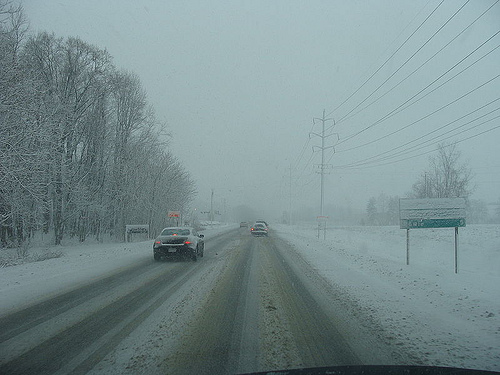
“Oh, isn’t it a lovely sunset?” a young woman asked Robert Frost.
He said, “I never discuss business after dinner.”

“Oh, isn’t it a lovely sunset?” a young woman asked Robert Frost.
He said, “I never discuss business after dinner.”
There was a young fellow named Cholmondeley,
Who always at dinner sat dolmondeley.
His fair partner said,
As he crumbled his bread,
“Dear me! You behave very rolmondeley!”
Said a man to his spouse in east Sydenham:
“My best trousers! Now where have you hydenham?
It is perfectly true
They were not very new,
But I foolishly left half a quydenham.”
A young Englishwoman named St John
Met a red-skinned American It John
Who made her his bride
And gave her, beside,
A dress with a gaudy bead Frt John.
There was a young vicar from Salisbury
Whose manners were quite halisbury-scalisbury.
He went around Hampshire
Without any pampshire
Till his bishop compelled him to walisbury.
(Thanks, Gavin.)

Sumer is icumen in,
Lhude sing cuccu!
Groweth sed, and bloweth med,
And springth the wude nu–
Sing cuccu!
— English round, 1260
Winter is icumen in,
Lhude sing Goddamm,
Raineth drop and staineth slop,
And how the wind doth ramm!
Sing: Goddamm.
— Ezra Pound, 1917
The names of the 12 months can be anagrammed into these lines:
Merry, durable, just grace
My every future month embrace;
No jars remain, joy bubble up apace.
But poet and journalist George Ellis (1753-1815) summed them up this way:
Snowy, Flowy, Blowy,
Showery, Flowery, Bowery,
Moppy, Croppy, Droppy,
Breezy, Sneezy, Freezy.
Calm and implacable,
Eyeing disdainfully the world beneath,
Sat Humpty-Dumpty on his mural eminence
In solemn state:
And I relate his story
In verse unfettered by the bothering restrictions of rhyme or metre,
In verse (or “rhythm,” as I prefer to call it)
Which, consequently, is far from difficult to write.
He sat. And at his feet
The world passed on — the surging crowd
Of men and women, passionate, turgid, dense,
Keenly alert, lethargic, or obese.
(Those two lines scan!)
Among the rest
He noted Jones; Jones with his Roman nose,
His eyebrows — the left one streaked with a dash of gray –
And yellow boots.
Not that Jones
Has anything in particular to do with the story;
But a descriptive phrase
Like the above shows that the writer is
A Master of Realism.
Let us proceed. Suddenly from his seat
Did Humpty-Dumpty slip. Vainly he clutched
The impalpable air. Down and down,
Right to the foot of the wall,
Right on to the horribly hard pavement that ran beneath it,
Humpty-Dumpty, the unfortunate Humpty-Dumpty,
Fell.
And him, alas! no equine agency,
Him no power of regal battalions –
Resourceful, eager, strenuous –
Could ever restore to the lofty eminence
Which once was his.
Still he lies on the very identical
Spot where he fell — lies, as I said, on the ground,
Shamefully and conspicuously abased!
– Anthony C. Deane, in Carolyn Wells, A Parody Anthology, 1922
Doe, doe!
I shall dever see her bore!
Dever bore our feet shall rove
The beadows as of yore!
Dever bore with byrtle boughs
Her tresses shall I twide–
Dever bore her bellow voice
Bake bellody with bide!
Dever shall we lidger bore,
Abid the flow’rs at dood,
Dever shall we gaze at dight
Upon the tedtder bood!
Ho, doe, doe!
Those berry tibes have flowd,
Ad I shall dever see her bore,
By beautiful! by owd!
Ho, doe, doe!
I shall dever see her bore,
She will forget be id a bonth,
(Bost probably before)–
She will forget the byrtle boughs,
The flow’rs we plucked at dood,
Our beetigs by the tedtder stars.
Our gazigs at the bood.
Ad I shall dever see agaid
The Lily and the Rose;
The dabask cheek! the sdowy brow!
The perfect bouth ad dose!
Ho, doe, doe!
Those berry tibes have flowd –
Ad I shall dever see her bore,
By beautiful! by owd!!
— Henry Cholmondeley-Pennell, Puck on Pegasus, 1868
(“Dedicated to the End of the Dictionary”)
A xylographer started to cross the sea
By means of a Xanthic Xebec;
But, alas! he sighed for the Zuyder Zee,
And feared he was in for a wreck.
He tried to smile, but all in vain,
Because of a Zygomatic pain;
And as for singing, his cheeriest tone
Reminded him of a Xylophone–
Or else, when the pain would sharper grow,
His notes were as keen as a Zuffolo.
And so it is likely he did not find
On board Xenodochy to his mind.
The fare was poor, and he was sure
Xerofphagy he could not endure;
Zoophagous surely he was, I aver,
This dainty and starving Xylographer.
Xylophagous truly he could not be–
No sickly vegetarian he!
He’d have blubbered like any old Zeuglodon
Had Xerophthalmia not come on.
And the end of it was he never again
In a Xanthic Xebec went sailing the main.
— Mary Mapes Dodge, Poems and Verses, 1904
“L E G on the Death of L X and R N S, Squire of the Coun T of S X”
In S X once there lived M N,
Who was Xceeding Y Y;
But with so much O B C T
It almost closed his I I.
When from his chair E would R I I,
U would have laughed to C
The awkwardness his fat did cause
To this old O D T.
But barring that E was so fat,
E was a right good fell O,
And had such horror of X S
U never saw him mell O.
N O O so red E did not like,
As that which wine will give,
So did S A to keep from drink
As long as E did live.
Two daughters fair this old man had,
Called Miss M A and L N,
Who, when the old chap took his E E,
Would try to T T the men.
Over the C C, these maids to please,
There came two gallants gay;
M A and L N ceased to T T,
And with them ran away.
These gallants did them so M U U,
And used such an M N C T
Of flattery, U must X Q Q
Their fugitive propensity.
The poor old man heaved many S I I
For frail M A and L N;
E called each gallant gay a rogue,
A rascal, and a villain.
And all with half an I might C
His gradual D K,
Till M T was his old arm-chair,
And E had passed away.
— William T. Dobson, Literary Frivolities, Fancies, Follies and Frolics, 1880
Poet/farmer Thomas Tusser composed his Five Hundred Points of Good Husbandry (1573) for the most part in rhyming couplets. But in Chapter 49 he gets ambitious, casting his conclusion in 94 consecutive words that begin with the letter T:
The thrifty that teacheth the thriving to thrive,
Teach timely to traverse, the thing that thou ‘trive,
Transferring thy toiling, to timeliness taught,
This teacheth thee temp’rance to temper thy thought.
Take Trusty (to trust to) that thinkest to thee,
That trustily thriftiness trowleth to thee.
Then temper thy travell, to tarry the tide,
This teacheth thee thriftiness, twenty times try’d.
Take thankfull thy talent, thank thankfully those,
That thriftily teacheth thy time to transpose.
Troth twice to be teached, teach twenty times ten,
This trade thou that takest, take thrift to thee then.
“Perhaps this was the most difficult chapter, according to its length, that our author had to compose,” writes editor William Mavor, “yet he has strained alliteration to the most extravagant pitch; for when he writes trive for contrive, and for the sake of the rhyme uses thee for thrive, we cannot help pitying the miserable expedients to which he was reduced, in order to accomplish his design.”
“In other respects the advice is good.”
As down the street he took his stroll,
He cursed, for all he is a saint.
He saw a sign atop a pole,
As down the street he took a stroll,
And climbed it up (near-sighted soul),
So he could read–and read “FRESH PAINT,” …
As down the street he took a stroll,
He cursed, for all he is a saint.
— Wallace Rice
Grave inscription of a horse thief:
He found a rope and picked it up,
And with it walked away.
It happened that to other end
A horse was hitched, they say.
They took the rope and tied it up
Unto a hickory limb.
It happened that the other end
Was somehow hitched to him.
From Frederic William Unger, Epitaphs, 1904